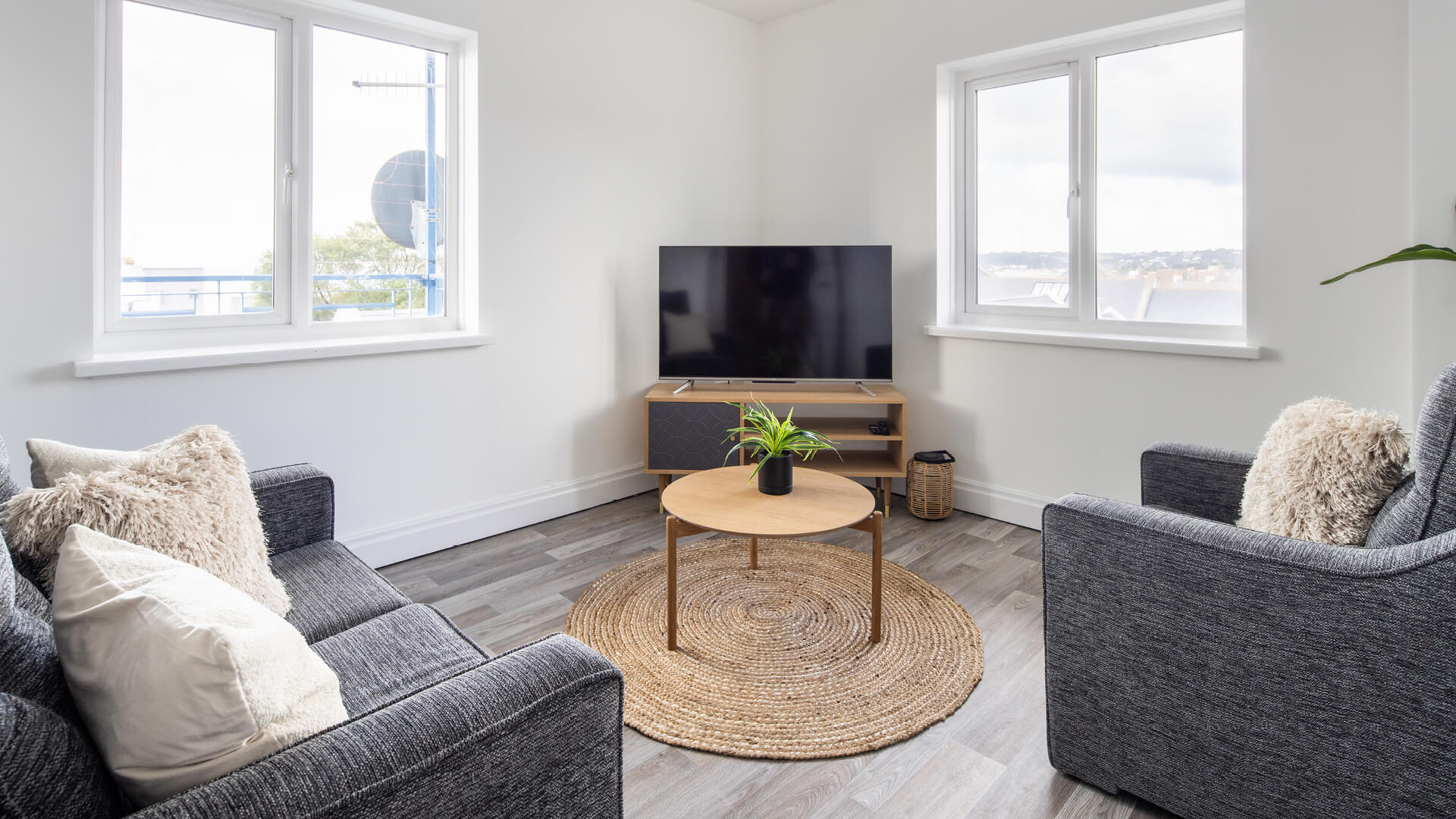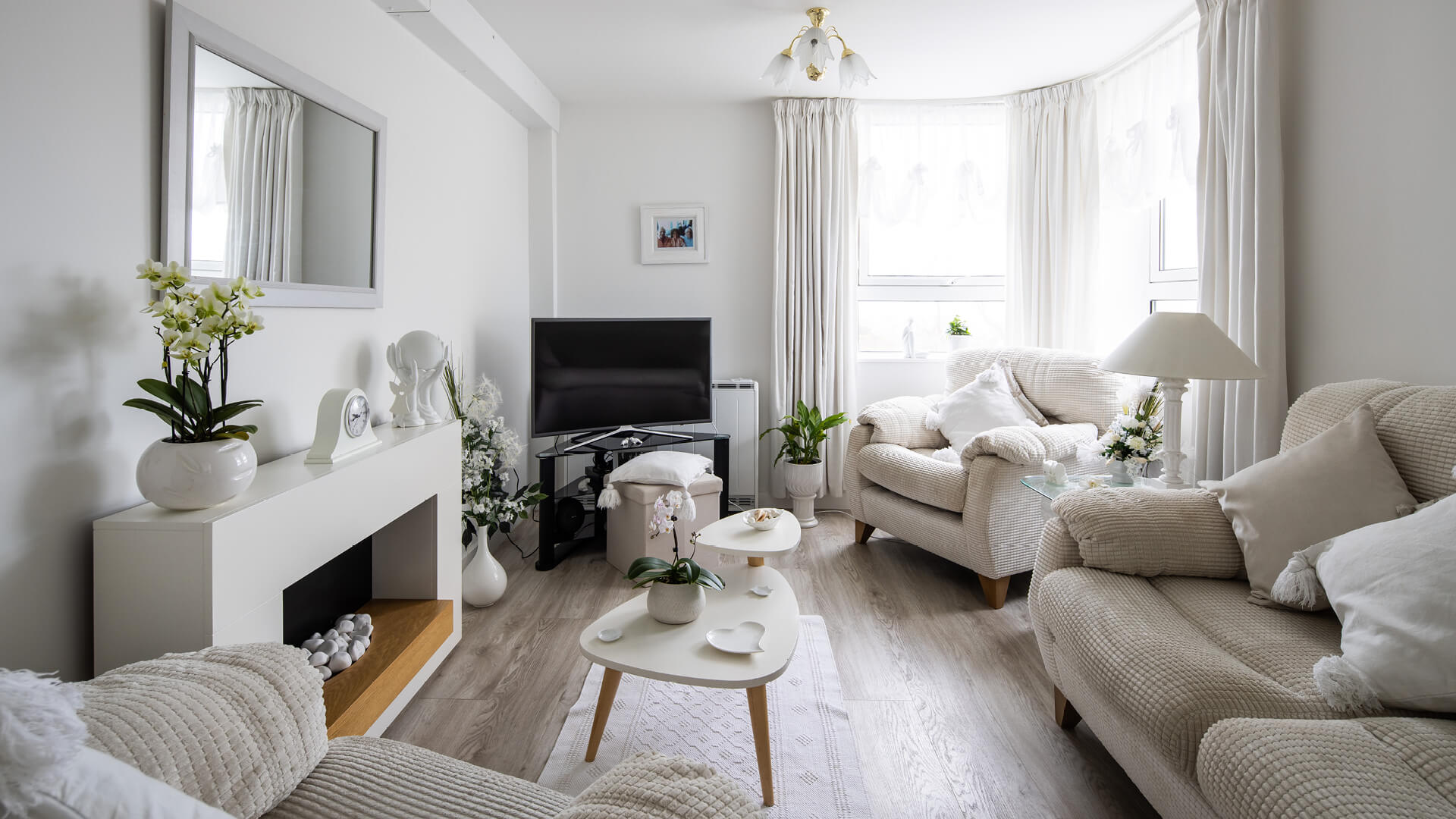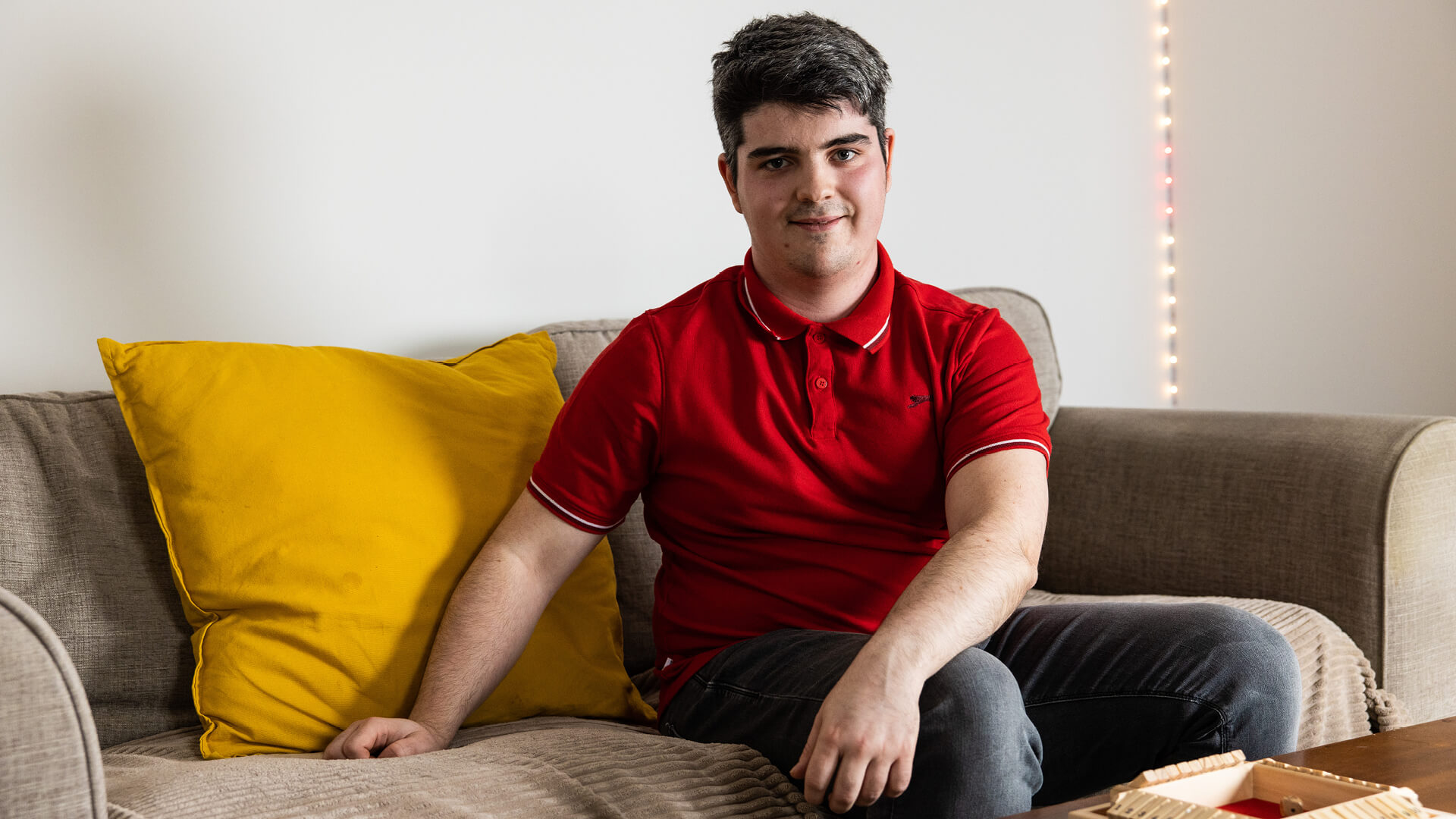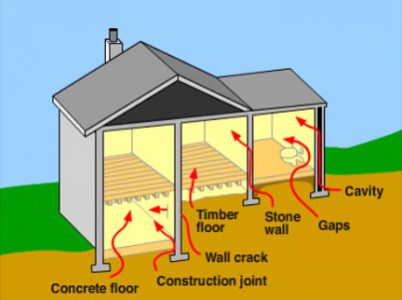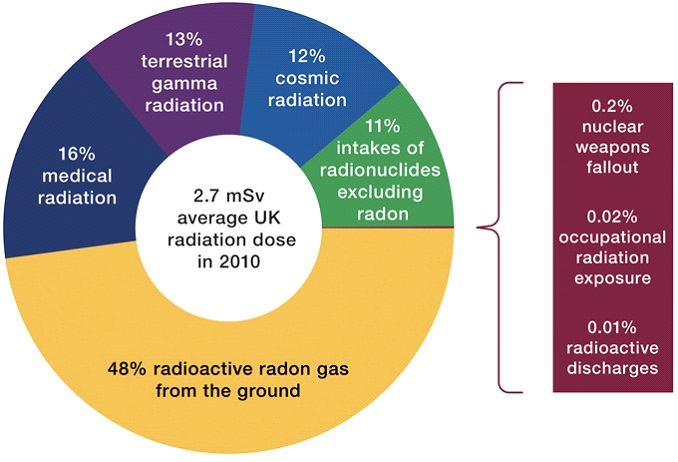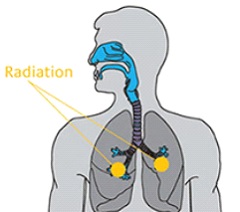What is radon?
Radon is a colourless, odourless radioactive gas. It is formed by the radioactive decay of the small amounts of uranium that occur naturally in all rocks and soils.
Where is radon found?
Radon is found everywhere. Outdoors, radon levels are low and the risk to health is small. This also applies to many indoor areas. Every building contains radon but the levels are usually low. The chances of a higher level depends on the type of ground. Air pressure in buildings tends to be lower than outside, so radon is drawn in through gaps.
Radon levels vary between neighbouring homes and with different living styles. The only way to find out the level of radon in your home is to measure it with special measuring devices whilst you are living there.
What is a low level?
The amount of radon is measured in becquerels per cubic metre of air (Bq m-3). The average level in UK homes is 20 Bq m-3. For levels below 100 Bq m-3, your individual risk remains relatively low and not a cause for concern. However, the risk increases as radon levels increase.
Our exposure to radiation
We are all exposed to radiation from natural and man-made sources. Just 20 Bq m-3 (the average radon level in UK homes) gives us half our exposure to radiation from all sources. Higher radon levels give higher exposures; which is why it is important to find out the levels in your home.
Why is radiation harmful to us?
The radioactive elements formed by the decay of uranium can be inhaled and enter our lungs. Inside the lungs, these elements continue to decay and emit radiation which is absorbed by the nearby lung tissues and causes localised damage. This damage can lead to lung cancer. A report by the Health Protection Agency in the UK also concluded that the lifetime risk of lung cancer to smokers exposed to long term radon levels was significantly higher than non-smokers.
How can I reduce my risk?
The first step is to measure the radon levels in your home. If the measured radon levels are above the action level, we will take action to reduce the levels.
If you smoke and are concerned about the risks, the advice from Public Health England is that you stop smoking. Advice for those wishing to stop smoking can be found at https://www.gov.je/Health/Help2Quit/Pages/index.aspx.
If you have any further queries or concerns, please visit http://www.ukradon.org
